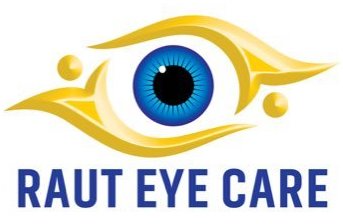Blogs for Surgery
List of articles for Surgery

Corneal Reshaping (Orthokeratology) in Pune
Corneal Reshaping, or Orthokeratology, is a non-surgical vision correction procedure that temporarily reshapes the cornea, the clear dome-like structure at the front of the eye.This procedure is used to correct refractive errors such as nearsightedness (myopia), farsightedness (hyperopia), and astigmatism.
It is achieved by wearing special rigid contact lenses while sleeping. The lenses gently reshape the curvature of the cornea and thus improve vision during the day without the need for glasses or contact lenses.Corneal reshaping is a safe, painless, and reversible procedure that does not involve any surgery.
It is an effective alternative to laser eye surgery, and the results can last for up to several years.It is a great option for athletes, children, or anyone who is not interested in laser vision correction.
Corneal Reshaping, or Orthokeratology, is a non-surgical vision correction procedure that temporarily reshapes the cornea, the clear dome-like structure at the front of the eye.This procedure is used to correct refractive errors such as nearsightedness (myopia), farsightedness (hyperopia), and astigmatism.
It is achieved by wearing special rigid contact lenses while sleeping. The lenses gently reshape the curvature of the cornea and thus improve vision during the day without the need for glasses or contact lenses.Corneal reshaping is a safe, painless, and reversible procedure that does not involve any surgery.
It is an effective alternative to laser eye surgery, and the results can last for up to several years.It is a great option for athletes, children, or anyone who is not interested in laser vision correction.

Iridotomy in Pune
Iridotomy is a laser eye procedure that is used to treat certain types of glaucoma.The procedure involves making a small hole in the iris of the eye, using a laser, to allow fluid to drain from the eye.
The purpose of the procedure is to reduce the pressure in the eye, which can help to prevent further damage to the optic nerve.The procedure is typically performed on an outpatient basis and takes only a few minutes.
The procedure is generally safe, with minimal side effects.After the procedure, you may experience some discomfort, redness, and blurred vision.
In most cases, these symptoms should improve within a few days.It is important to follow your doctor’s instructions and use the prescribed eye drops to promote healing.
Iridotomy is a laser eye procedure that is used to treat certain types of glaucoma.The procedure involves making a small hole in the iris of the eye, using a laser, to allow fluid to drain from the eye.
The purpose of the procedure is to reduce the pressure in the eye, which can help to prevent further damage to the optic nerve.The procedure is typically performed on an outpatient basis and takes only a few minutes.
The procedure is generally safe, with minimal side effects.After the procedure, you may experience some discomfort, redness, and blurred vision.
In most cases, these symptoms should improve within a few days.It is important to follow your doctor’s instructions and use the prescribed eye drops to promote healing.

Intraocular Lens Implantation in Pune
Intraocular Lens Implantation (IOL) is a surgical procedure to replace the natural lens of the eye with an artificial lens.The natural lens of the eye can become cloudy or opaque due to cataracts or other conditions, which can affect vision.
The artificial lens, or IOL, is designed to correct a person's vision and improve their sight.The procedure is typically done under local or general anesthesia and takes about an hour.
During the procedure, the eye surgeon makes a small incision in the cornea and carefully removes the natural lens.The artificial lens is then placed in the eye and positioned correctly.
The surgeon will then close the incision, and the patient will be monitored for a few hours before being discharged.After the procedure, the patient may experience some discomfort and light sensitivity for a few days, but these should resolve.
The patient should follow up with the eye doctor in order to monitor recovery and ensure the implant is functioning properly.
Intraocular Lens Implantation (IOL) is a surgical procedure to replace the natural lens of the eye with an artificial lens.The natural lens of the eye can become cloudy or opaque due to cataracts or other conditions, which can affect vision.
The artificial lens, or IOL, is designed to correct a person's vision and improve their sight.The procedure is typically done under local or general anesthesia and takes about an hour.
During the procedure, the eye surgeon makes a small incision in the cornea and carefully removes the natural lens.The artificial lens is then placed in the eye and positioned correctly.
The surgeon will then close the incision, and the patient will be monitored for a few hours before being discharged.After the procedure, the patient may experience some discomfort and light sensitivity for a few days, but these should resolve.
The patient should follow up with the eye doctor in order to monitor recovery and ensure the implant is functioning properly.

Strabismus Surgery in Pune
Strabismus surgery is a procedure used to correct a misalignment of the eyes.It is most commonly used to treat an eye condition known as strabismus, which is also sometimes referred to as crossed eyes or walleye.
Strabismus surgery is typically performed on children, but it can also be performed on adults.The surgery involves tightening or loosening the eye muscles in order to move the eyes back into their proper alignment.
Local anesthesia is used during the procedure, which usually lasts from one to two hours.After the surgery, patients may experience some discomfort, blurred vision, and tearing for a few days.
It is important for patients to follow the doctor's instructions for post-operative care, including wearing protective eyewear, avoiding rubbing the eyes, and attending follow-up appointments.The results of the surgery can be permanent, but some patients may require additional surgeries to achieve the desired outcome.
Strabismus surgery is a procedure used to correct a misalignment of the eyes.It is most commonly used to treat an eye condition known as strabismus, which is also sometimes referred to as crossed eyes or walleye.
Strabismus surgery is typically performed on children, but it can also be performed on adults.The surgery involves tightening or loosening the eye muscles in order to move the eyes back into their proper alignment.
Local anesthesia is used during the procedure, which usually lasts from one to two hours.After the surgery, patients may experience some discomfort, blurred vision, and tearing for a few days.
It is important for patients to follow the doctor's instructions for post-operative care, including wearing protective eyewear, avoiding rubbing the eyes, and attending follow-up appointments.The results of the surgery can be permanent, but some patients may require additional surgeries to achieve the desired outcome.

Macular Hole Repair in Pune
Macular hole repair is a surgical procedure that repairs a hole that forms in the macula, the central part of the retina of the eye.The macula is responsible for allowing us to see objects in detail, so the hole can cause central vision loss and blurriness.
The surgery involves cutting and removing the vitreous humor, the gel-like substance that fills the back of the eye, and then using a special gas to fill the hole in the macula.The gas helps to keep the hole closed while the eye heals and tissue grows around it.
The surgery is usually done as an outpatient procedure and is considered relatively safe.Recovery times vary, but most people will see some improvement in their vision within weeks of the surgery.
The success rate for macular hole repair is very high, with the majority of people experiencing a significant improvement in their vision.
Macular hole repair is a surgical procedure that repairs a hole that forms in the macula, the central part of the retina of the eye.The macula is responsible for allowing us to see objects in detail, so the hole can cause central vision loss and blurriness.
The surgery involves cutting and removing the vitreous humor, the gel-like substance that fills the back of the eye, and then using a special gas to fill the hole in the macula.The gas helps to keep the hole closed while the eye heals and tissue grows around it.
The surgery is usually done as an outpatient procedure and is considered relatively safe.Recovery times vary, but most people will see some improvement in their vision within weeks of the surgery.
The success rate for macular hole repair is very high, with the majority of people experiencing a significant improvement in their vision.

Retinal Detachment Surgery in Pune
Retinal detachment surgery is a procedure used to repair a detached retina, which is the thin layer of light-sensitive tissue that lines the back of the eye.In order to repair the detachment, the surgeon will need to create a small incision in the eye and insert a special instrument known as a scleral buckle.
This device helps to secure the retina back into place while the fluid that has caused the detachment is drained.The surgeon may also use laser or cryotherapy to seal any tears or holes in the retina.
After the procedure, the surgeon will usually prescribe medications to help reduce inflammation and prevent infection.In most cases, patients will need to wear protective eyewear and use eye drops to reduce their risk of further retinal detachment.
After the surgery, it is important to have regular follow-up visits with your doctor to monitor the progress of your recovery.
Retinal detachment surgery is a procedure used to repair a detached retina, which is the thin layer of light-sensitive tissue that lines the back of the eye.In order to repair the detachment, the surgeon will need to create a small incision in the eye and insert a special instrument known as a scleral buckle.
This device helps to secure the retina back into place while the fluid that has caused the detachment is drained.The surgeon may also use laser or cryotherapy to seal any tears or holes in the retina.
After the procedure, the surgeon will usually prescribe medications to help reduce inflammation and prevent infection.In most cases, patients will need to wear protective eyewear and use eye drops to reduce their risk of further retinal detachment.
After the surgery, it is important to have regular follow-up visits with your doctor to monitor the progress of your recovery.
